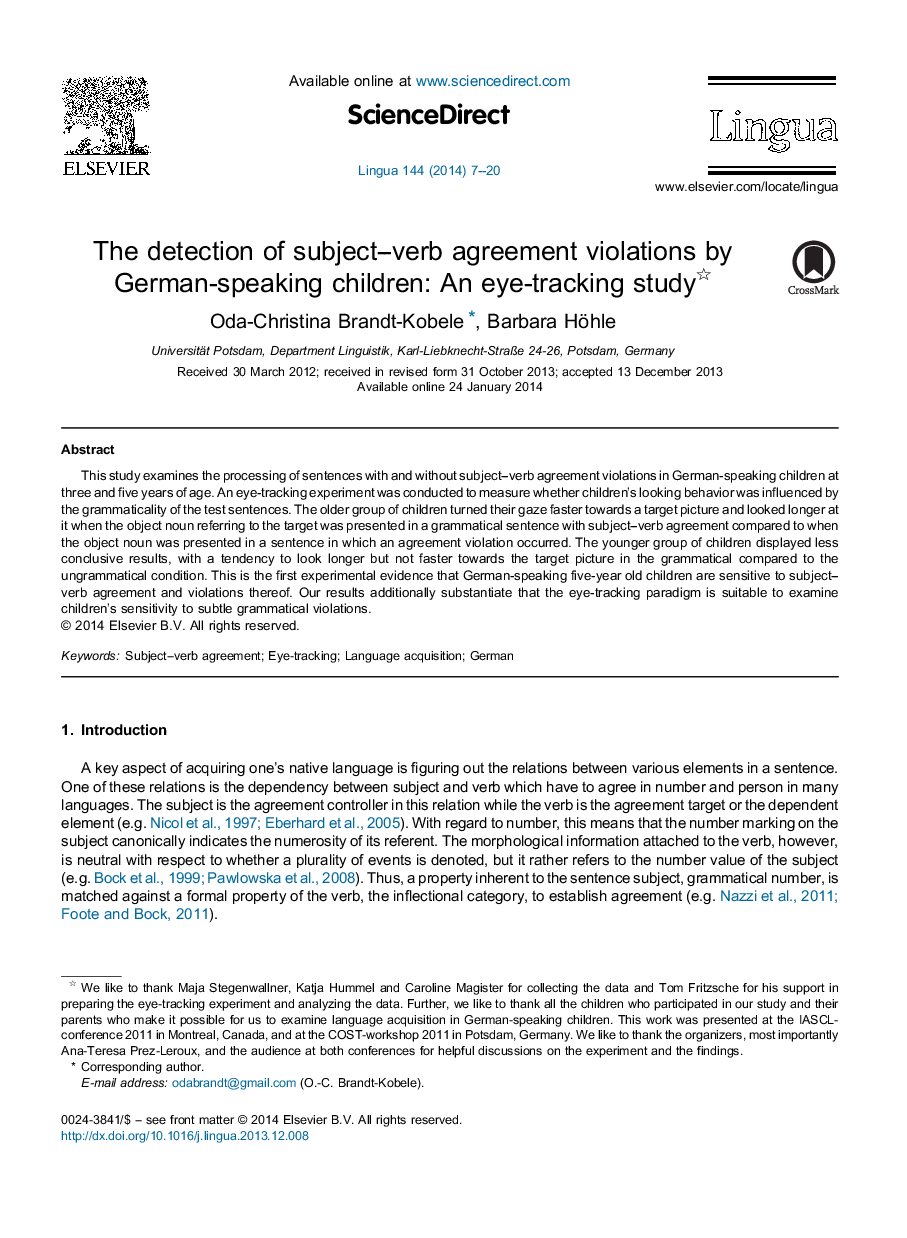| Article ID | Journal | Published Year | Pages | File Type |
|---|---|---|---|---|
| 935471 | Lingua | 2014 | 14 Pages |
•We examine sensitivity to subject–verb agreement in German preschoolers.•We employ the preferential looking paradigm (PLP).•5-Year olds are able to detect agreement violations during sentence processing.•The PLP is suitable to investigate young children's sentence processing abilities.
This study examines the processing of sentences with and without subject–verb agreement violations in German-speaking children at three and five years of age. An eye-tracking experiment was conducted to measure whether children's looking behavior was influenced by the grammaticality of the test sentences. The older group of children turned their gaze faster towards a target picture and looked longer at it when the object noun referring to the target was presented in a grammatical sentence with subject–verb agreement compared to when the object noun was presented in a sentence in which an agreement violation occurred. The younger group of children displayed less conclusive results, with a tendency to look longer but not faster towards the target picture in the grammatical compared to the ungrammatical condition. This is the first experimental evidence that German-speaking five-year old children are sensitive to subject–verb agreement and violations thereof. Our results additionally substantiate that the eye-tracking paradigm is suitable to examine children's sensitivity to subtle grammatical violations.
